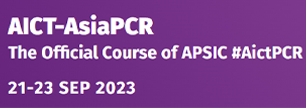


- NEWS
-
-
Scientific LibraryAcute Coronary Syndrom ASCVD Prevention Bifurcation Stenting Cardio-Oncology Congestive Heart Failure DAPT Duration Drug Coated Balloon Fractional Flow ReserveCases VideosE-LearningIndustry Insights
- LIVE REVIEW
-
 Article Link
Article Link

Long-term dual antiplatelet-induced intestinal injury resulting in translocation of intestinal bacteria into blood circulation increased the incidence of adverse events after PCI in patients with coronary artery disease
YiY Zheng, TT Wu, X Xie et al.
KEYWORDS
CAD; DAPT; PCI
BACKGROUND AND AIMS - The present study aimed to investigate the efficacy and safety of long-term (>18 months) dual antiplatelet therapy (DAPT) after percutaneous coronary intervention (PCI).
METHODS - A total of 3205 coronary artery disease (CAD) patients after PCI from CORFCHD-PCI, a retrospective cohort study (Identifier: ChiCTR-ORC-16010153), were divided into two groups: monotherapy of aspirin or clopidogrel group (SAPT group, n = 2188 and DAPT group, n = 1017) according to whether to discontinue DAPT 18 months after PCI. After propensity matching analysis (PSM), we included 1017 patients in the DAPT group and 1017 patients in the SAPT group. All the patients were followed-up for at least 18 months and the longest follow-up time is 120 months. The primary endpoint was the incidence of major adverse cardiac events (MACEs). The secondary endpoints were the incidence of major adverse cardiovascular and cerebrovascular events (MACEEs) and bleeding events. We also selected 178 patients for detection of claudin-3 and intestinal fatty acid-binding protein and 58 patients for 16s RNA sequencing of whole blood.
RESULTS - The incidences of MACEs (13.9% vs. 9.0%, p = 0.001) and MACCEs (16.3% vs.10.0%, p < 0.001) were significantly increased in the DAPT group compared to the SAPT group. We also found DAPT increased the bleeding events compared to SAPT (4.6% vs. 2.9%, p = 0.048). Multivariate Cox regression analyses showed that in the DAPT group, cumulative risk of MACCEs increased 1.797 times (HR = 1.797, 95%CI: 1.429–2.226, p < 0.001), MACEs increased 1.737 times (HR = 1.737, 95%CI: 1.360–2.218, p < 0.001) and the bleeding events increased 2.129 times (HR = 2.129, 95%CI: 1.388–3.266, p = 0.001) compared to the SAPT group. We also found the plasma concentrations of claudin-3 and intestinal fatty acid-binding protein (I-FABP) were significantly higher in patients in the DAPT group compared with patients in the SAPT group (both p < 0.001). Correspondingly, the abundance of blood intestinal bacteria in the DAPT group was significantly increased compared to that in the SAPT group (p < 0.001). Furthermore, high-throughput metabolomics analysis suggested that serum level of ceramide (d18:1/16:0) and Neu5Ac was significantly increased in the DAPT group compared to the SAPT group (both p < 0.001).
CONCLUSIONS - The present study suggests that long-term dual antiplatelet therapy longer than 18 months significantly increases the incidence of both ischemic events and bleeding events after PCI. This preliminary study also indicates that long-term DAPT causes intestinal injury, which induces translocation of intestinal bacteria into the bloodstream.




















